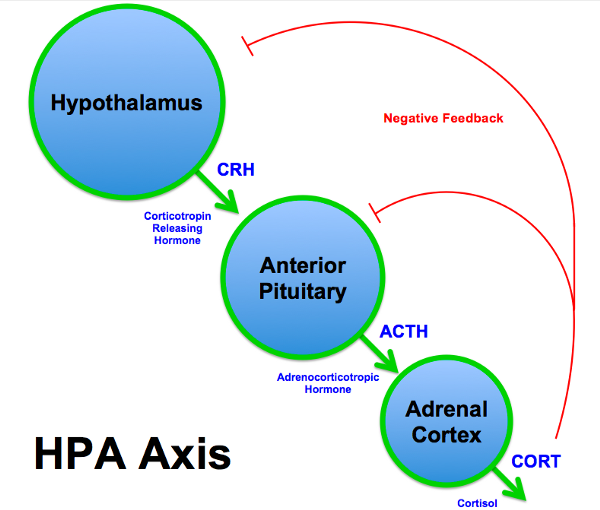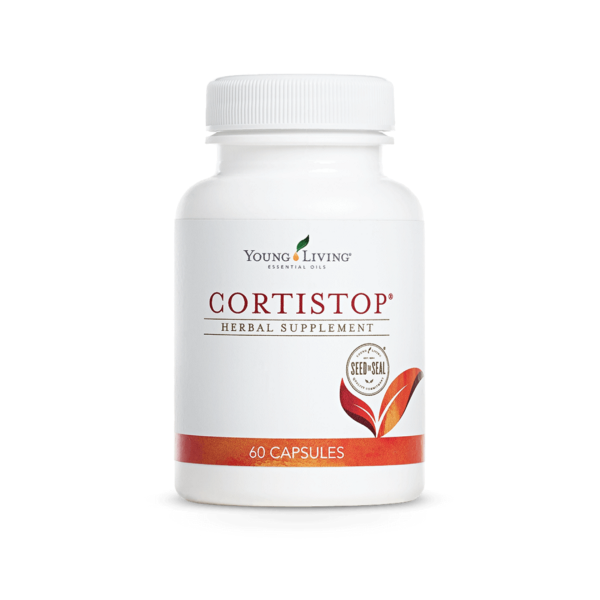Effective Strategies for Managing Stress with CortiStop
Written on
Understanding the Impact of Stress
In today's fast-paced world, stress management has become essential. The Centers for Disease Control and Prevention (CDC) estimates that around 70% of medical appointments are linked to stress-related issues. Symptoms can range from headaches and weight gain to digestive problems, all stemming from underlying stress. CortiStop, a supplement by Young Living, aims to support the body's natural equilibrium, particularly in stressful situations. In this article, we will explore the stress response, the components of CortiStop, and important safety considerations.
The HPA Axis: A Key Player in Stress
To grasp the concept of stress, it's crucial to understand the hypothalamic-pituitary-adrenal (HPA) axis. This intricate hormonal feedback loop begins in the hypothalamus, where corticotropin-releasing hormone (CRH) is generated. CRH instructs the anterior pituitary gland to produce adrenocorticotropic hormone (ACTH), which then circulates to the adrenal glands, prompting them to release cortisol—the primary hormone associated with stress.
When Cortisol Levels Become Elevated
When cortisol levels rise, they send a feedback signal to the hypothalamus and anterior pituitary gland to halt the stress response. However, chronic stress leads to prolonged high cortisol levels, which can disrupt this feedback mechanism. As a result, the body becomes less sensitive to the stop signals, ultimately leading to a condition known as adrenal fatigue. This can have various negative health implications, including fatigue, weight gain, and cardiovascular issues.

DHEA: A Crucial Counterbalance to Cortisol
Dehydroepiandrosterone (DHEA) serves as a counterpoint to cortisol; while cortisol is catabolic, DHEA is anabolic. Maintaining a proper balance between these hormones is vital for a healthy stress response. During stressful periods, cortisol levels may rise, but the body's ability to produce DHEA often declines. This imbalance can lead to various health issues, including immune system suppression, altered insulin function, and mood disturbances.

Exploring CortiStop
CortiStop is designed to provide a blend of herbs and hormones aimed at naturally regulating the stress response. Here are some key ingredients found in CortiStop that contribute to this balance:
- Pregnenolone: Known to lower CRH levels in studies, thereby impacting cortisol production.
- DHEA: Supplies the body with DHEA, which may be diminished due to stress.
- Phosphatidylcholine: Potentially safeguards the brain, liver, and stomach during stress.
- Phosphatidylserine: May help regulate the HPA axis and reduce cortisol production, especially in those experiencing chronic stress.
- Black Cohosh: Can mitigate stress responses and may enhance mood.
- Clary Sage and Frankincense: Both are known for their uplifting properties.
- Fennel and Peppermint: These can soothe digestive discomfort.
How to Incorporate CortiStop into Your Routine
For optimal results, take two capsules in the morning before breakfast. If additional benefits are desired, consider taking another two capsules before bedtime. It is recommended to use CortiStop daily for eight weeks, followed by a 2–4 week break before resuming. This supplement is suitable for adults and children over the age of 12, though caution is advised when considering its use for children.
Before starting any new supplement regimen, particularly one containing hormones like CortiStop, consult with your healthcare provider. You might also want to consider a hormone panel prior to beginning. Exercise caution if combining CortiStop with other hormone-related supplements or medications, especially hormonal birth control or hormone replacement therapy. Pregnant or nursing women should be especially careful, as hormone balance is crucial during these times.
It is advisable to avoid this product if you have polycystic ovarian syndrome (PCOS), as DHEA may exacerbate symptoms by increasing testosterone levels.
References
Originally published on lindseyelmore.com on May 28, 2018.